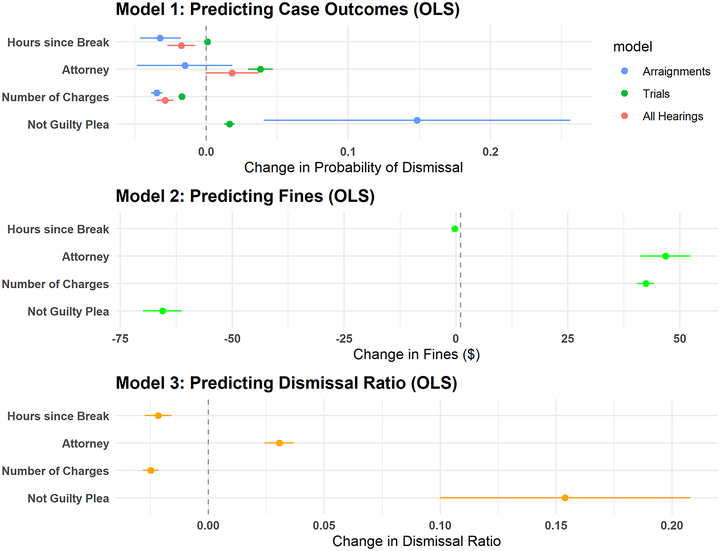The Effects of Decision Fatigue on Judicial Behavior: A Study of Arkansas Traffic Court Outcomes
 Predicting Effect of Fatigue on Disposals and Fines
Predicting Effect of Fatigue on Disposals and Fines
Abstract
Judges who hear multiple cases a day may become exhausted by the time later cases are heard, increasing susceptibility to cognitive depletion, yet the role of workload fatigue in decision-making from hearing cases has rarely been tested in the U.S. One problem is the lack of public data—most U.S. courts do not maintain time-stamped records of case hearings. Using an original dataset of all traffic cases heard in Pulaski County, Arkansas in 2019 and 2020, we examine whether decision fatigue affects case outcomes. We find that charges are less likely to be dismissed in arraignment hearings at the end of a court session than in those at the beginning. This pattern, however, does not hold for trial hearings, suggesting that the effects of fatigue may be context-specific. We suggest policy recommendations to mitigate the effects of decision fatigue in lower courts—courts having the most contact with citizens.